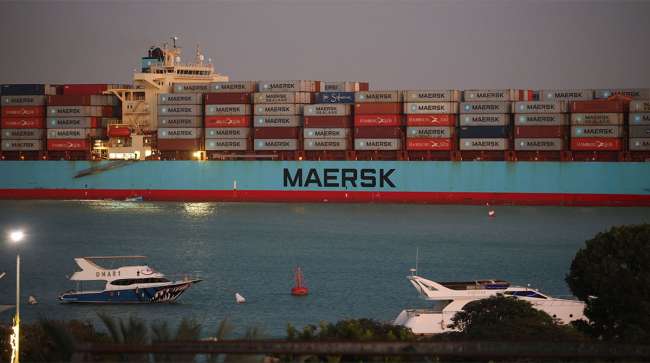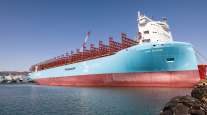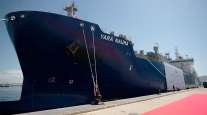Maersk Expects IMO to Approve Global CO2 Levy in 2025

[Stay on top of transportation news: Get TTNews in your inbox.]
Shipping giant A.P. Moller-Maersk A/S expects the industry’s global regulator next year to approve a charge on vessels’ greenhouse gas emissions.
At International Maritime Organization talks in London this week, nations have been inching toward new regulations to rein in emissions from a sector that annually spews about a billion tons of carbon dioxide into the atmosphere. Simon Bergulf, Maersk group representative for Europe, said he expects a charge on pollution to be approved in 2025.
Maersk ranks No. 5 on the Transport Topics list of the largest global freight companies.
Potential new IMO rules also include a phased reduction in the GHG intensity of energy used by ships. Ultimately, these regulations could slash carbon emissions and possibly force the industry to pay billions of dollars if it keeps emitting.
“We still don’t have the full contour of what that framework’s gonna be, but it’s becoming more and more clear,” Bergulf said in an interview at the IMO.
Shipping carries more than 80% of world trade and still runs almost exclusively on fossil fuels. This year, attacks by Yemen’s Houthi militants in the Red Sea area have forced vessels to take significantly longer routes, adding to emissions.
The IMO, a United Nations agency, is aiming to finalize the new rules next year. They’re then set to come into force in 2027. If it does go ahead and impose a global, mandatory pricing mechanism for greenhouse gas emissions, it will be a world first, according to the World Bank. But with more than 175 member states, finding agreement isn’t always easy.
Want more news? Listen to today's daily briefing above or go here for more info
Maersk’s Bergulf said a previous proposal from Japan for about $60 per ton of emissions was reasonable. He added that a charge of $150 from day one without any flexibility mechanism is “not gonna work.”
“I think this industry is turning itself from being a laggard into a leader in the energy transition,” said Jan Dieleman, president of Cargill Inc.’s ocean transportation business. “If they get this over the line, there’s no other industry in the world that has a global strategy, with real measures and a pathway, to getting toward zero.”




